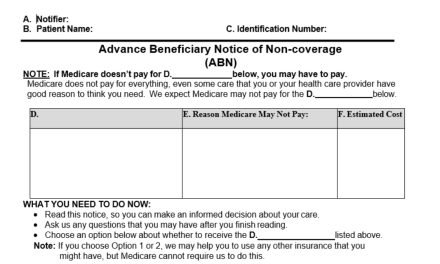
Access to Minor Children’s Medical Records – Divorce Cases and Domestic Violence Cases

Health care providers are sometimes put “in the middle” when a divorced parent requests records for a minor child[i] and the other parent objects, attempting to block the provider from turning over the records. The provider is in the difficult position of juggling competing laws affecting children, parents, confidentiality, and marriage and divorce.
Fortunately, Illinois law gives the provider some guidance in these situations. The law gives very different treatment to parents who are simply non-custodial, as opposed to parents who are under court orders of protection issued under the Domestic Violence Act.
Non-Custodial Parents Have Access to Child Medical Records
In Illinois, a child’s parent may not be denied access to the child’s medical records on the basis that the parent does not have physical custody or other parental responsibility (such as joint parenting). Illinois law states: “…access to records and information pertaining to a child, including medical…care,…shall not be denied to a parent for the reason that such parent has not been allocated parental responsibility… Health care professionals and health care providers shall grant access to health care records and information pertaining to a child to both parents, unless the health care professional or health care provider receives a court order or judgment that denies access to a specific individual.” (750 ILCS 5/602.11)
This means that, so long as a parent presents the health care provider with a proper right of access or patient authorization form requesting the records, the provider should comply. The provider is not required to interpret the parties’ divorce documents or make other legal determinations about their respective rights. The only exception to producing the records in this situation would be if one of the parties secures a court order prohibiting the provider from disclosing, or the parent from obtaining, the child’s records. The order would specifically state that medical records are not to be given. If the requesting parent objects and persists in the request, the provider should obtain his or her own legal counsel for advice about how to proceed.
Access Must Be Denied to Parent Who Is Subject to Order of Protection
Under Illinois’ domestic violence law, a court may issue an order of protection to an individual (the “respondent”) to restrain that person from stalking or coming within a certain distance of a petitioner (the abused adult or child). This may occur when a custodial parent obtains an order of protection on behalf of a child against the other parent (the respondent in the order of protection).
Illinois law provides that “no parent who is a named respondent in an order of protection issued pursuant to the Illinois Domestic Violence Act of 1986 or the Code of Criminal Procedure of 1963 shall have access to the health care records of a child who is a protected person under the order of protection provided the health care professional or health care provider has received a copy of the order of protection.” In other words, if the respondent parent is prohibited from coming within a certain distance of the child, that parent may not obtain the child’s medical records for as long as the order of protection remains in effect, unless superseded by another court order.
Unlike an explicit order that states, “Parent X may not obtain records of Child Y,” an “Order of Protection” does not discuss medical records; its purpose is to restrict contact between the respondent parent and child. Nonetheless, by operation of law, the respondent parent is not entitled to obtain the records of the child named in the order of protection.
The key here is whether the provider has received a copy of the order of protection. If you have received a request for a child’s records and subsequently receive a copy of what appears to be a valid order of protection covering the child and against the requesting parent, you should not turn over records. Ideally, you should seek legal counsel to make certain that you protect your license from a complaint for failure to produce records. At minimum, you should send the requesting parent a written response stating that you have received a copy of an order of protection against the parent, and that by law you cannot turn over the records. Of course, keep a copy of your written response in the event it is needed later to prove that you followed the law in good faith.
A Final Note: Financial Responsibility Does Not Confer Right to Records
From time to time, physicians are confronted with a parent who believes he or she is entitled to a child’s records because that parent has agreed to be responsible for payment of medical bills. Of course, financial responsibility is a separate issue and irrelevant to the legal right to obtain records. The financially responsible parent is not necessarily entitled to a minor’s records, just as the physician may not assert non-payment as a basis to withhold records from an individual who is legally authorized to obtain them.
[i] References in this article to “child” mean a minor child who is not emancipated.



















